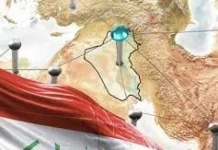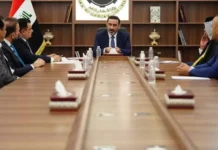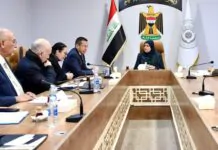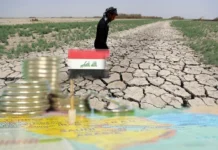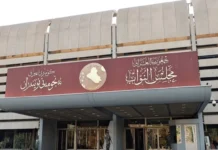Tishwash: Trump’s visit to the Gulf: Will it open the door to investment in the Kurdistan Region?
US President Donald Trump’s visit to several Gulf states has raised questions about its political and economic impact on the Kurdistan Region, given the region’s well-known positive relationship with Gulf capitals and its close ties with Washington on development and security issues.
In this context, researcher and political analyst Yassin Aziz told Baghdad Today on Sunday (May 18, 2025) that “Trump’s visit has significant repercussions for the entire region, including Iraq. Since the Kurdistan Region is part of Iraq, the region—although it has constitutionally granted special status—remains bound by the public interests and frameworks set by Iraqi foreign policy.”
The Gulf and the region: a stable partnership and open prospects
Aziz adds that “the region’s relations with the Arab Gulf states have been distinguished and positive for a long time, particularly with pivotal countries such as Saudi Arabia, the UAE, Qatar, and even the rest of the Gulf states,” noting that “these countries already have investments in the region, and there is ongoing economic activity, although the ambition is for it to expand further in the coming period.”
He believes that Trump’s visit to the Gulf states “could be a catalyst” in this direction, as it reshapes the region’s economic priorities and could create a new climate that encourages Gulf states to increase their investment engagement in safe and stable regions such as the Kurdistan Region.
Washington – Gulf – Erbil… a triangle of intersecting interests
In response to the possibility of competition between Gulf and American investments in the region, Aziz ruled out this proposal, asserting that “each party has its own perspective, and Gulf state investments do not come at the expense of foreign companies, but may complement them.” He emphasized that “the Kurdistan Region is viewed by the Gulf as a stable model, suitable for investment, due to the availability of security and supportive laws.”
The open opportunity… when will it become a reality?
Aziz concluded his remarks by emphasizing that “Trump’s visit to the Gulf will not negatively impact the relationship between Erbil and the Gulf capitals, but may contribute to accelerating economic cooperation between them, within an environment that encourages multilateral partnerships.”
He believed that “the next phase may witness greater openness by Gulf companies towards the region, driven by external political encouragement and a domestic desire to develop non-oil sectors.” link
************
Tishwash: During the Baghdad Summit, Iraq prepares to present a modern economic vision, the outlines of which were drawn up by Sudani.
Iraq is preparing today, Saturday, to present a modern economic vision stemming from nationalist trends outlined by Prime Minister Mohammed Shia al-Sudani during the Arab Summit. Meanwhile, the presence of Arab leaders and monarchs in Baghdad marks a turning point in regional relations and consolidates Iraq’s openness to its Arab surroundings.
The Executive Director of the Iraq Development Fund, Mohammed Al-Najjar, said, “Iraq is preparing to present a modern economic vision stemming from national trends whose outlines were shaped by Sudan.” He pointed out that, “This vision includes new partnership paths and advanced investment methods that are in line with the nature of the current economic phase and challenges.”
Al-Najjar emphasized that “the presence of Arab leaders in Baghdad represents a turning point in regional cooperation relations and consolidates Iraq’s openness to its Arab surroundings.” He added that “the Iraq Development Fund today represents an attractive and diverse investment base capable of absorbing capital and companies seeking to enter the Iraqi market, which is characterized by its vastness and rapid growth.” link
*************
Tishwash: Iraq’s debt “very safe” below 33% of GDP
Iraq’s total public debt remains below 33% of the country’s gross domestic product (GDP), securing a low-risk standing in global credit rankings, an Iraqi official confirmed Friday.
Speaking to Shafaq News, Mazhar Mohammed Saleh, financial adviser to the prime minister, noted that Iraq wiped out nearly $100 billion in legacy foreign debt through the 2004 Paris Club agreement, most linked to pre-1990 conflicts under the former regime. The remaining debt was restructured over two decades, with the final installment—a $2.7 billion bond—due for full repayment by 2028.
During the war against ISIS, Iraq borrowed about $12 billion to support its national budget. The majority of these loans, especially those from the International Monetary Fund, have been repaid.
In the coming four years, Iraq must repay $9 billion in external debt. A similar amount, mainly from international development funds, is dedicated to rebuilding areas liberated from conflict. External debt currently represents roughly 8% of GDP, which Saleh described as “very safe.”
Domestic public debt totals 85 trillion Iraqi dinars (around $65 billion), with half held in the Central Bank of Iraq’s investment portfolio and the remainder mostly with state-owned banks or issued as bonds and treasury bills. Saleh attributed this accumulation to three significant downturns in oil revenues over recent years.
Internal debt, however, makes up about 25% of GDP. Combined with external obligations, Iraq’s total public debt stays below 33%—well under the widely accepted 60% threshold for sustainable debt levels.
Saleh also highlighted an unresolved $40 billion in debt dating to the Iran-Iraq war that remains unsettled despite the 2004 Paris Club deal. These “odious debts,” owed to eight countries, are expected to be written off by at least 80% under the agreement, pending verification. link

